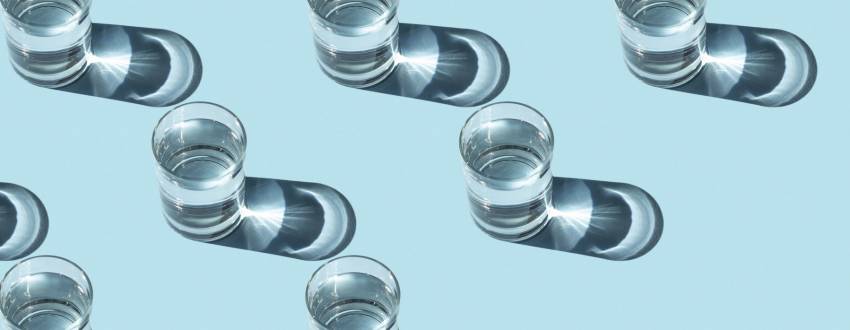Fasting may be the new rage in weight loss and calorie control, but when you’re fasting in mourning rather than to fit into your summer clothes, somehow it doesn’t hold the same charm. Here are some tips for you to get the through the day feeling well enough that you can focus on the meaning of Tisha B’av. Remember, if you’re an expectant mother, have diabetes, kidney disease, or any other health issue that would prohibit you from fasting safely, consult with your doctor as well as your rabbi ahead of time to determine how much you can and should fast.
Water, Water Everywhere.

If you’re not always so great at getting your 8 cups of water in (more on whether you truly need 8 actual cups on another day), make up for lost time a few days before the fast. Hydrate well by drinking water. Headaches, dizziness, and general not-feeling-well-ness are primarily caused by dehydration, not hunger, so take the edge off that fast day feeling by drinking days before the fast.
Skip the Sports Drinks.

While colorful labels full of compelling talk of electrolyte power seems like the way to go, save your money and your calories. The electrolytes you need when you hydrate are sodium and potassium, and you can easily get those from food sources. Eat a banana, skip the Gatorade.
Hydrate in advance, but don’t be dramatic about it.
Overdoing the water intake can shock your system and automatically flush all of it out, taking precious electrolytes with it. Increase your water intake by a few cups a day until Monday, so your body has time to get used to an increased fluid intake.
Cut Back on the Caffeine.

Caffeine withdrawal headaches are no joke, so stave off the migraines by cutting back early. Switch to half-caf or decaf coffee a few days before the fast will allow your body to get used to minimized caffeine levels and accommodate accordingly. If you drink multiple cups of coffee a day, start cutting back as early as you can.
If all else fails: caffeine capsules.
Speak to your local Orthodox rabbi about how and when you can take these magic pills. Bear in mind that in the US, caffeine pills are considered a supplement, not a medication, and are therefore not regulated by the FDA. Check the ingredients list carefully and speak to your doctor or pharmacist for a brand recommendation.
Seuda Hamafsekes the right way.

Make your last prefast meal count; don’t cram arbitrary calories in hopes of tiding you over until the break-fast. Your meal should contain all three vital macronutrients-carbohydrates, protein and fats- in order to stay full for longer. Be sure to choose complex carbohydrates like whole grains, fruits and vegetables to avoid a blood sugar spike and subsequent crash, which will leave you feeling awful.
Pace yourself after the fast.
It’s easy to gorge yourself on pastries and bread after 24 hours of fasting, but we all have personal experience as to how bad that feels. Break your fast on some water (we suggest adding a little lemon juice and whole lemon slices) then move on to a balanced meal- also including complex carbohydrates, protein and fats.
Listen to your body.

Adults, especially Americans, are excellent at ignoring the signs of satiety that their body sends them, moving seamlessly from satisfied, to full, to stuffed beyond all rational thought. Eyes bigger than your stomach? Take a break and let your brain register what your stomach is feeling. That cinnamon bun isn’t going anywhere.






Reviews